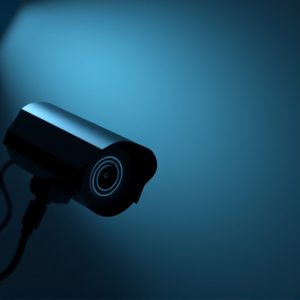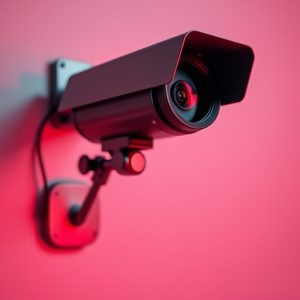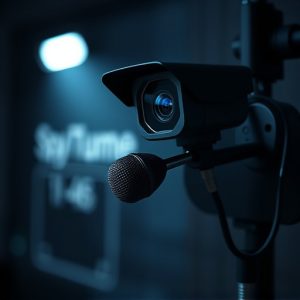Mastering Mini Recorders: Your Guide to Spy Camera and Microphone Usage
Mini recorders, often used as spy cameras and microphones, have revolutionized surveillance and cov…….
Mini recorders, often used as spy cameras and microphones, have revolutionized surveillance and covert operations with their stealthy design and advanced capabilities. These compact devices offer high-definition video and crystal-clear audio recording, equipped with features like night vision, motion detection, and wireless connectivity for optimal performance in challenging conditions. They are powered by long-lasting batteries and come with secure digital storage options and cloud compatibility to ensure the safety and accessibility of recorded data. These spy camera and microphone systems are ideal for a range of applications due to their versatility, including professional surveillance, law enforcement operations, and personal security. However, it's crucial to navigate these technologies ethically and legally, with respect for privacy rights and informed consent from all parties involved. The ethical deployment of mini recorders is paramount to prevent misuse and uphold the integrity of their legitimate applications in ensuring safety, documenting important events, and fostering accountability.
Explore the clandestine capabilities of mini recorders, the modern incarnation of spy cameras and microphones. This article delves into their technical specifications, functionality, and practical applications. Understand how these discreet devices can capture audio and visual data with remarkable clarity, raising important ethical questions in the process. Join us as we unravel the intricacies behind these miniature surveillance powerhouses.
Unveiling the Stealthy Power of Mini Recorders as Spy Cameras and Microphones: A Comprehensive Guide
Mini recorders, often compact and unassuming, have become indispensable tools in various fields, including surveillance and espionage. These devices seamlessly blend into environments, serving as covert spy cameras and microphones. Their stealthy nature allows for discreet recording without drawing attention, making them ideal for sensitive situations where the presence of larger, more conspicuous equipment could compromise an operation. With high-definition video capabilities and crystal-clear audio recording, these devices can capture vital intelligence with remarkable clarity.
The mini recorder’s technological prowess extends beyond mere size; it encompasses advanced features such as night vision, motion detection, and wireless connectivity. These enhancements ensure that even in low-light conditions or at a distance, the spy camera and microphone can perform optimally. Users benefit from the devices’ long battery life, which supports extended surveillance without the need for frequent charging. Moreover, the integration of secure digital storage or cloud compatibility guarantees that the captured data remains safe and retrievable for analysis. Understanding how to operate these mini recorders effectively is crucial for anyone looking to utilize them for intelligence gathering or covert operations. This guide aims to demystify their use, highlighting key functionalities and offering insights into optimizing their performance for various applications.
The Technical Specs and Functionality of Mini Recorders: How They Work as Spy Devices
Mini recorders, often mistakenly referred to as spy cameras and microphones, are compact electronic devices designed for discreet audio and video recording. These devices are engineered with advanced technical specifications that enable them to capture high-quality sound and visual footage. At their core, mini recorders incorporate sophisticated miniature microphones capable of picking up a wide range of frequencies with clarity. The microphones are typically omnidirectional or have selectable pickup patterns to ensure the recording of audio from various angles without the need for repositioning the device.
In terms of functionality as spy devices, mini recorders are equipped with features that make them ideal for covert operations. They often come with tiny form factors that can be easily concealed within everyday objects or worn unobtrusively. The recording time can vary depending on the device’s battery capacity and storage space; some models can run for hours and store days, even weeks, of audio or video footage. This longevity is crucial when deploying them in surveillance scenarios where continuous monitoring is required. Additionally, these devices are usually equipped with built-in SD card slots, allowing users to expand the recording duration by swapping out cards without interrupting the operation. The integration of night vision capabilities through infrared sensors further expands their utility, as they can record clear footage even in low-light or dark environments. With secure file storage and encryption options available, mini recorders serve as reliable spy cameras and microphones for both professional investigative work and personal security applications.
Practical Applications and Ethical Considerations of Using Mini Recorders as Spy Tools
mini recorder technology has become increasingly sophisticated, enabling compact spy cameras and microphones to capture high-quality audio and video undetected. The practical applications of these devices are vast, ranging from law enforcement’s covert surveillance operations to personal security measures. In professional settings, mini recorders can be used to discreetly record meetings or interviews, ensuring that accurate records are kept without disrupting the flow of conversation. For journalists and investigative reporters, they serve as invaluable tools for capturing interviews or documenting events as they unfold, often in environments where open recording would be impractical or potentially threatening.
However, the use of mini recorder spy cameras and microphones raises ethical considerations that must be carefully navigated. Privacy is a paramount concern; the clandestine nature of these devices can lead to unauthorized recording of private conversations, raising legal and moral questions. Users must be cognizant of the jurisdictions in which they operate, as laws governing surveillance and privacy vary widely across regions. Ethical use demands transparency about the purpose of recording and obtaining consent from all parties involved, upholding the integrity of both the recorder’s operator and the information captured. It is crucial to differentiate between legitimate uses for maintaining safety, documenting events, or ensuring accountability, and those that may infringe upon individuals’ rights to privacy. As such, responsible deployment of mini recorder technology requires a clear understanding of its implications and a commitment to upholding ethical standards in all applications.


